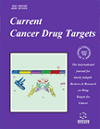
Full text loading...

Hepatocellular carcinoma (HCC) is a kind of fatal cancer with a variety of risk factors. However, a pan-etiology molecular characterization of HCC has not been explored.
The objective of this study is to explore etiology-specific features of HCC and improve our understanding of tumorigenesis, thereby revealing potential therapeutic targets.
RNA-seq, genetic alteration, copy number alteration, and clinicopathological data of The Cancer Genome Atlas -Liver Hepatocellular Carcinoma cohort were downloaded and explored. Immune-related features and single-cell and spatial transcriptomic data were adopted and analyzed.
Etiology-based analyses revealed that HCC with different etiologies showed different clinical features, including gender composition, ethnic composition, clinical stage distribution, and survival. In addition, distinct genetic alterations, copy number alterations, and tumor microenvironment were observed in HCC patients with different etiologies. Significantly enhanced expression of squalene epoxidase (SQLE) was observed in viral hepatitis-related HCC and was associated with poor tumor grade and overall survival. Correlation analysis revealed a negative relationship between SQLE expression and anti-tumor immunity. Single-cell and spatial transcriptomics demonstrated that SQLE contributed to reduced T cell and NK cell infiltration while increasing macrophage and monocyte infiltration.
The current study demonstrated that HCC has etiology-specific clinical features, genetic alteration, copy number alteration, and tumor microenvironment. Overexpression of SQLE in viral hepatitis-related HCC correlate with poor clinical outcome and may contribute to reduce T cell and NK cell infiltration while increased macrophage and monocyte infiltration, which lead to immunosuppressive microenvironment and can be an actionable target.

Article metrics loading...

Full text loading...
References


Data & Media loading...